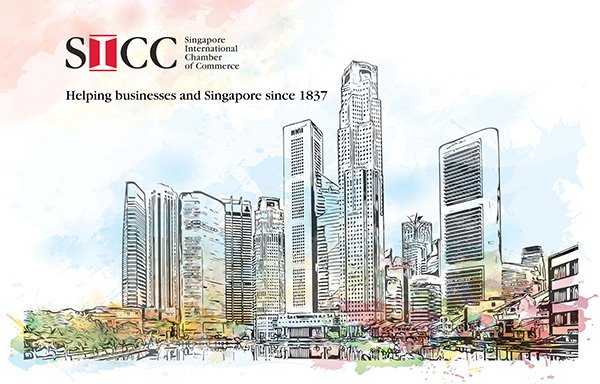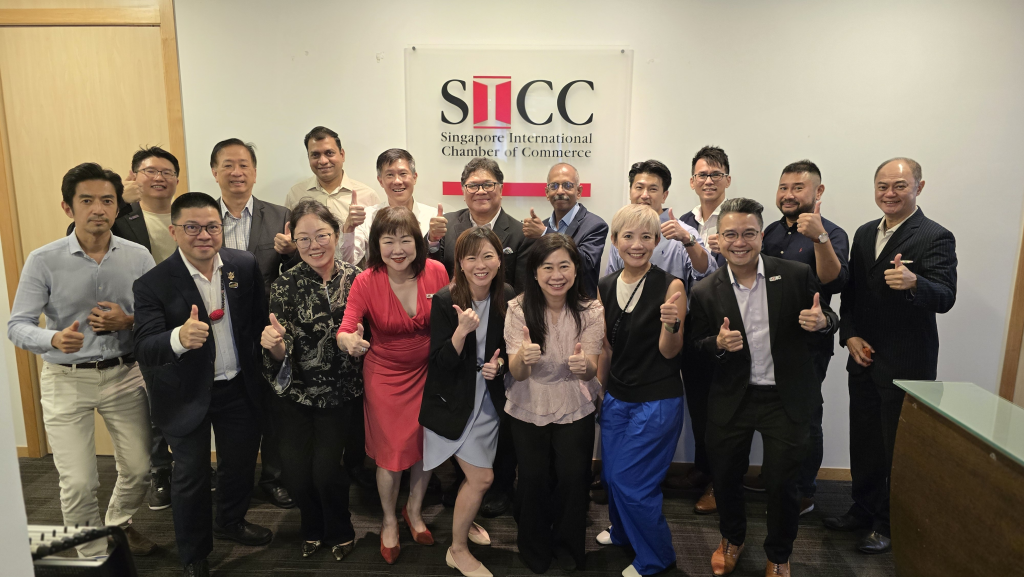Navigating Green Finance, 16 May
In this instalment of our Sustainability Event Series, exclusively sponsored by the Chamber’s Principal Strategic Partner, Singapore American School, we had the opportunity to learn more about how green finance can ensure better environmental, social and governance outcomes and the risks and implications of greenwashing from a truly stellar panel of practitioners. After a presentation by Ms. Valerie Lau, CFA, Co Head Sustainable Finance APAC, UBS AG Singapore, Ms. Pamela Lee, Deputy Chief Sustainability Officer, Monetary Authority of Singapore (MAS), Associate Professor Zhang Weina, Department of Finance, NUS Business School, National University of Singapore; Academic Director, MSc in Sustainable and Green Finance; Deputy Director, Sustainable and Green Finance Institute (SGFIN) joined Valerie in a panel conversation moderated by Mr. Brian Ho, Partner, Sustainability Leader for Southeast Asia, and Sustainability Assurance Leader for the Asia-Pacific, Deloitte.
Here’s what we learnt:
🍃 Greenwashing is one of the key focus areas for regulators as it has become a widespread phenomenon that extends beyond the financial services sector to many other sectors.
🍃 Green hushing is the “new” variant of green washing. Many companies are resorting to concealing Environmental, Social and Governance (ESG) efforts to avoid scrutiny and accusations of greenwashing. To address green objectives and reporting obligations, internal capability building and organizational alignment are important safeguards against greenwashing. Fit for purpose definitions, standards and regulations help too.
🍃 Recent trends in Asia indicate a significant increase in the adoption of bonds and grants for sustainable investing and financing. Catastrophe bonds (CAT), frameworks and grants have been established to enable organizations to plan ahead in the green transition space. The extent to which an organization integrates ESG into its operations determines its risk management effectiveness and ability to develop solutions for better environmental outcomes.
🍃 SMEs have a big part to play too. Developing solutions in ESG investing can be challenging but a clear and comprehensive taxonomy, such as the Singapore Asia Taxonomy for Sustainable Finance, provides clarity. This enables SMEs to check against a subset of matrices for better assessment and development of solutions.
🍃 Studies on the impact of technology and sustainability trends on job roles have established a broader Sustainable Finance Jobs Transformation Map, which outlines the required competencies workers need to augment their skills.
🍃 This is where talent development comes into play – a necessary and crucial tool for staying relevant. Upskilling and reskilling of the existing workforce is important and this is why sustainability education for both the current and future workforce is evolving to align with and address different market trends.
Many thanks, once again to our speakers for sharing their insights, to our exclusive event sponsor SAS and to our audience for their active participation.
Exclusive Event Sponsor






